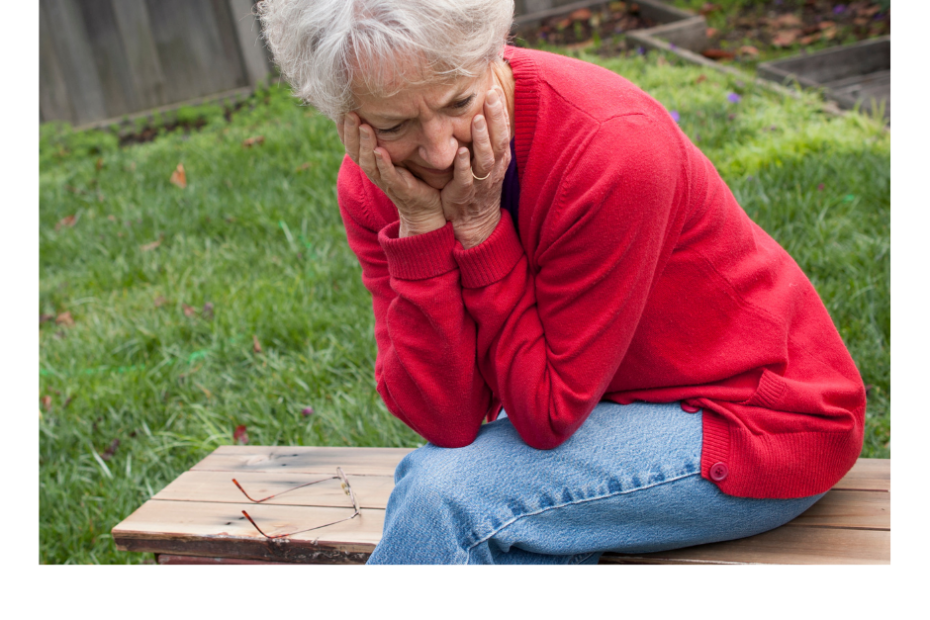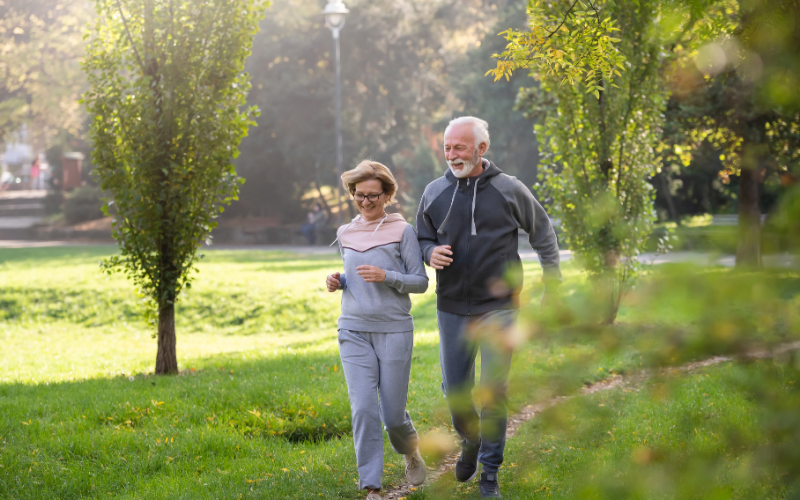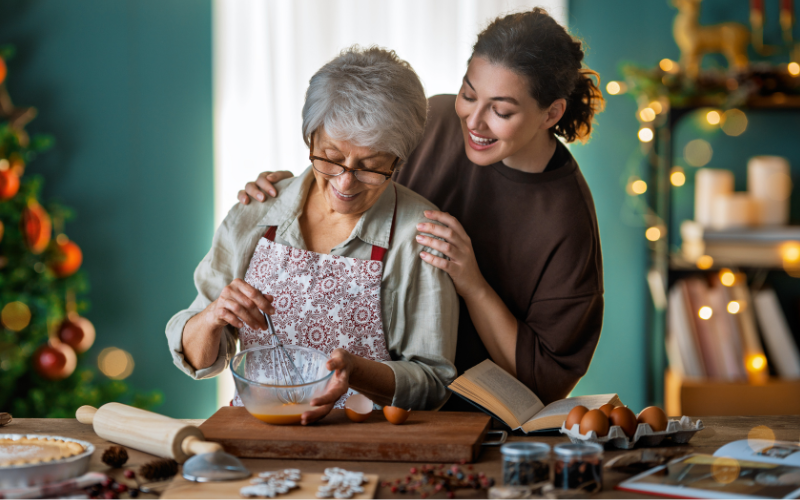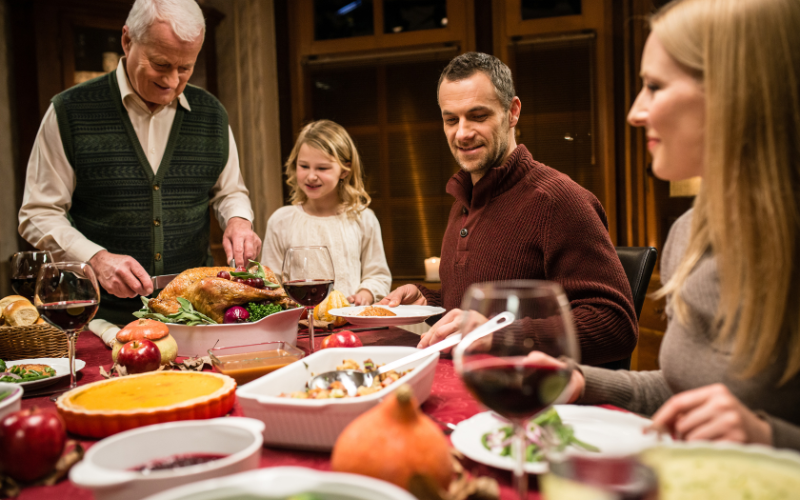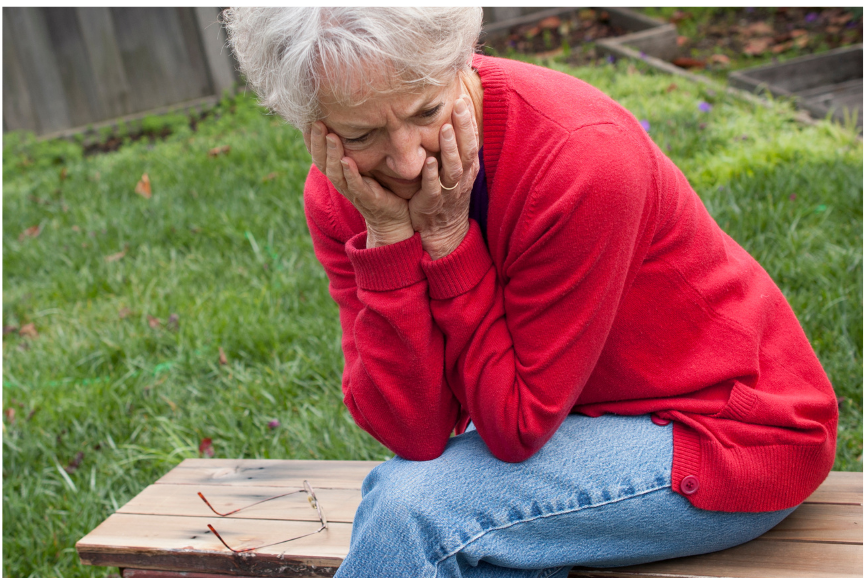
When seniors lose a spouse, it can turn their whole life upside down. They can mourn and feel sad, numb, shocked, and scared. They may feel guilty for still being alive and angry at the spouse for leaving them. Everyone has different feelings so there is not a right or wrong way to feel while mourning such a big loss.
Here are some common issues seen in seniors when they are grieving:
- Issues with sleeping
- No appetite
- Concentration problems
- A difficult time making decisions
It is a difficult task to go from a household of two to a one-person household. It may take the senior some time to feel better. They will still miss their spouse, but their pain should lessen over time. They will have some good days when they feel up to doing things and they will have bad days where they do not feel like doing much. All these feelings are natural after losing a loved one.
Building a Support System
If you feel that the senior is not managing their grief very well and they have feelings of overwhelm or depression, make sure to tell them to seek help. Sometimes friends and family who understand the situation can be of great help. They may understand the feelings and can express their own memories of the person to help each other grieve the loss. Most people feel better after talking about their loss and sharing this together can help with coping with the intense emotions after a loss of a loved one.
Some people may experience mourning for a long time which can be unhealthy. If they are unable to go on with day-to-day life due to depression or anxiety, they need to seek professional help.
Grief Counseling Can Help
Some people seek grief counseling to help work through their sorrow after the loss of a spouse. Having therapy with a grief counselor or a therapist can help them accept death and over time start a new life for themselves.
Those grieving the loss of a spouse can also seek out support groups of other grieving people. These groups are specialized, and they can search for one that suits their situation best. Many local hospitals, nursing homes, or even your doctor can help them find a support group in their area.
A crucial part of hospice is giving grief counseling, also called bereavement support, to the family of a person who was under their care. They can also ask hospice workers for bereavement support even if hospice was not used before the death.
It is very important for the senior to take good care of themselves. Grief affects emotional and physical health. The stress caused by the death of a spouse can cause the senior to get sick. They should eat, exercise, and get sleep so they can get back to doing the things they like such as walking, reading, watching movies etc. Seniors should try and accept help and companionship from friends and family as it may put them in good spirits and help them grieve.
Making Major Life Decisions Should Wait
As mourning takes time and emotions also take time to settle, the senior grieving the loss of a spouse should not make major life decisions right after their death as they may not be in the right state of mind.
Ensure They Take Care of Themselves While Grieving
Right after the loss of a spouse, a senior may keep themselves busy by taking care of details and they may have family around to help them, bring meals, and provide emotional support. However, after a while they go back to regular life, and they have to face the loss on their own.
Here are some things seniors can do after the loss of a spouse:
- Taking care of themselves
They should try to exercise regularly, eat healthy, and get sleep.
- Eating well
After the loss of a spouse, some seniors find themselves not enjoying preparing or eating meals. They may experience loneliness and find their home to be too quiet. Turning on the TV or music can help with having background noise. If they are unfamiliar with cooking, they can check their local library for information on cooking for one.
- Talking with friends
When they are ready, the senior should let their family and friends know that they want them to talk about their spouse. As they are in the grieving process as well, they may welcome the idea. It will help the senior feel at ease to do so as well since they are in good company.
- Visiting members of the religious community
Many seniors find it comforting to talk to others in the religious community when dealing with the loss of a spouse. They find that praying, talking to others of the same faith, reading religious texts, or listening to religious music brings them peace and comfort. If that is the case, make sure to encourage them to do so.
- Seeing a doctor
Seniors should keep up with their doctor’s visits. Also, if they are having trouble taking care of day-to-day activities such as dressing and eating, they should let the provider know so they can help them further.
Seek Help for Complicated Grief
Complicated grief is a condition where a person who has lost a loved one is unable to comprehend the loss, they experience intense prolonged grief and are unable to continue their own life. If a senior is dealing with complicated grief, they should seek help from a professional.
Losing a spouse is difficult as it involves emotions as well as worries about the future. Most spouses separate household tasks such as paying bills, taking care of the household, mowing the lawn etc. After the loss of a spouse, they may have to learn what their spouse did previously. The change may be difficult at first but eventually they get used to it and continue their new life.
Staying Active After the Loss of a Spouse
After the loss of a spouse, it may be difficult to be in social situations alone. There are still ways that a senior can stay active. Some of these include:
- Adopting a pet
- Joining a bowling league
- Volunteering
- Visiting the library
- Watching grandkids
- Taking a class at a senior center
Getting Legal and Financial Items in Order
After they have coped with the loss, here are some examples of legal and financial affairs to settle:
- Make any updates to the will
- Update the health insurance info
- Change the joint property to their name
- Make a list of bills that need to be paid for the next few months
Going Out in Social Settings
It may take time for the senior to go out in social settings after they lose a spouse. They should take their time and go out when they are ready. They should keep the outings in groups, and with married couples more informal so that they are not thinking about the past. Also, getting a pet may provide some companionship.
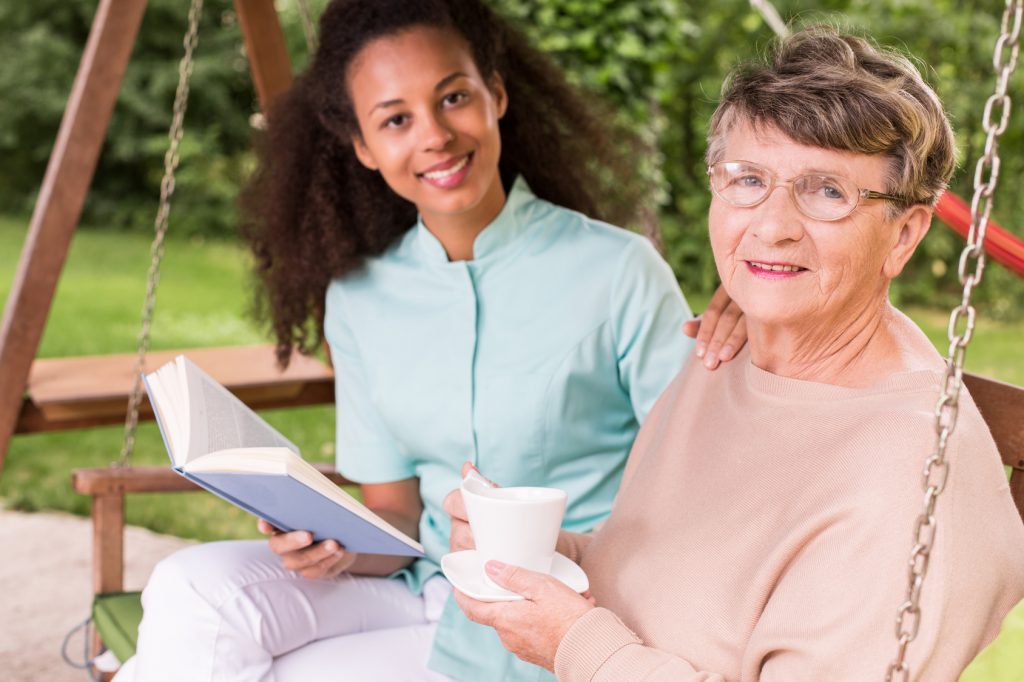
Is your senior loved one dealing with the loss of a spouse? Are you in need of elderly care or home health care? Assisting Hands Home Care can help. We offer companionship and custodial care for your loved ones in Lombard, Villa Park, Elmhurst, Medinah, Itasca and surrounding areas. Give us a call at (630) 526-6522 for more information.






